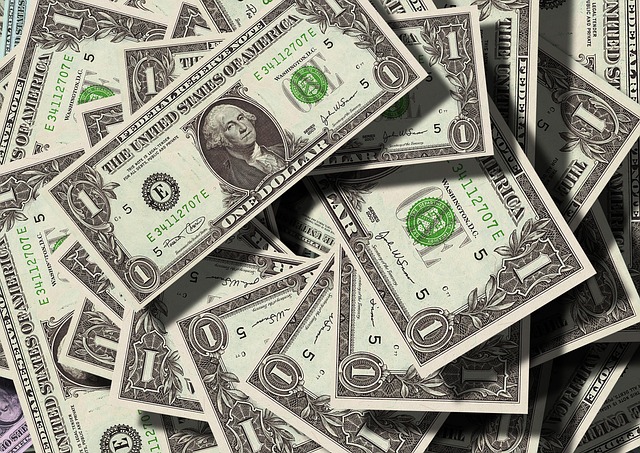Nothing gets me more uptight than having to deal with and think about money or lack of it. I’m guessing you’re the same? Most of us do not have the luxury of ever taking income for granted, yet most of us do. It took me many years to understand that the money that I earn or comes to me, needs to be respected as much as anything else we have in our lives. Your Wellbeing and Where to Start Part 4 discusses why it’s important to include financial health in your wellness plan and how to make money your friend.
It doesn’t all have to be doom and gloom. Getting a hold of our money management definitely gives a sense of control and peace of mind. Even if we still have trouble making ends meet, being clear about our financial health is the best first step in getting those ends meeting a little closer.
Why financial health is important
Examining your finances may seem difficult and something to avoid. I get it. However, there are lots of benefits to staying in control of your finances:
- You will know what you’re spending your money on going and whether you are overspending.
- It will give you peace of mind and a sense of control. This in turn goes a long way in preventing substance abuse, low mood, and ill mental health.
- It can help avoid getting into debt, prepare for unforeseen circumstances, and save something for your future.
A health check for your finances
A financial health check will give you a clear picture of your finances and helps you work out where you need to make changes. I usually do a thorough check-in every six months but at least once a year is advisable. If your income or circumstances change then it’s best to do it immediately. To help you get on track, a finance checklist template is really helpful. You can find some HERE
Calculate your total income
Begin by listing your sources of income.
- Your payslip will show you what you earn from your employment
- If you are getting welfare benefits make sure to include these.
- If you have extra earnings that you would classify as income, such as interest on savings or investment income, include them too.
Calculate your outgoings
Keeping track of your outgoings can be difficult. It can help to categorize them as follows:
- Everyday expenses include coffee, lunches, taxis, and social events. Keep receipts for each item you buy and enter the cost of the item in your weekly budget plan. It’s important to keep track of every penny spent to get a clear picture of your spending habits.
- Ongoing expenses include rent, gas, electricity, TV, phone and broadband. Your bank statements and regular bills will give you a good idea of how much you are spending.
- Loans and debts – as well as listing out your monthly/weekly repayments, it is important to write down how much you still owe on your mortgage or loans and the time it will take to repay them in full
- You may have regular savings in a deposit account or credit union. List all savings/deposits you make regularly. To get a full picture of your finances, record the amount of money you have in all savings accounts as part of your financial health check
- Occasional expenses such as medical costs, insurance, holidays, birthdays etc. Include as much as possible. You can always add things you forget later.
If you have any money left over after reviewing your income and outgoings, think about how you can use it effectively. Maybe you’re not saving already so maybe you can start. If you are spending more than your income, think about how you could reduce your expenses. Having done you outgoings checklist it will be clear where you are spending unnecessarily.
Make a budget and stick to it
There are some really good budget planning resources online that will help you organize a budget. It’s important to be honest about the figures in your budget and try not to overestimate or underestimate your income or spending. If you don’t keep to your budget, don’t be discouraged. Like with any new habit, it takes time and the better you get at it the more you will enjoy it. Also, make sure you leave something for fun and enjoyment. Even if all you can afford is your favorite bar of chocolate, make sure you afford yourself that little luxury.
I hope the past 4 weeks have helped you identify some areas where your wellbeing can use an upgrade. I’ve really enjoyed writing about it and it’s helped me so much to get my own wellbeing back on track. Please reach out with any queries you may have at nicky@intherooms.com.








3 Comments
Most definitely I agree with you that financial literacy is as crucial as literacy itself when it comes to existing in the world in the most productive manner possible. Financial literacy should be introduced at the high school level ACROSS THE BOARD because the fact is that a trained educator with a specific background in finance, who can produce the curriculum in a manner relevant to young people ( ie. What are some things, some items out there you guys want? We want Jordan’s, iPhones, etc” ok, then list the price. So we need this much money to get this item. And, we are going to have to factor in that we probably want to live in a shelter, probably one of our own taste and choosing. So we need to pay rent or purchase a home. Idk…I could obviously go on an on but based on my own high school and unfortunately even college experience I did not get this kind of education in the art of understanding money and it’s been a problem for me and something I have only recently begun to understand, accept and actually develop my worthiness regarding. A class on financial literacy in 11th or 12th grade, maybe even earlier, is going to probably save any kid who listens with half an ear many, many thousands of dollars over a lifetime and might have profound impacts on our economy as a whole.
I am enjoying reading about financial literacy and your articles are eye catching. Thank you
I would like to attend reguler meetings online